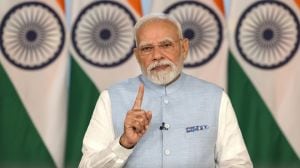Why ULFA is revived and killing
The ULFA suffered massive losses during Operation All Clear launched by Bhutan in December 2003. Since then, the terrorist outfit active in ...

The ULFA suffered massive losses during Operation All Clear launched by Bhutan in December 2003. Since then, the terrorist outfit active in Assam has been trying hard to revive itself. The complacency of the Indian law enforcement agencies have provided it that opportunity by failing to foil its strike at Dhemaji. Though the organisation managed to strike at two different places in the state on Independence Day, the strike at Dhemaji gave what it was looking for — major publicity that has the potential to boost the sagging morale of its cadres.
The Bhutanese crackdown on the three insurgent groups — United Liberation Front of Asom (ULFA), National Democratic Front of Bodoland (NDFB) and Kamatapur Liberation Organisation (KLO) — managed to remove insurgent bases from the territory of Bhutan. These groups had nearly 30 camps spread across the southern districts of Bhutan and the strength of militants was estimated to be over 3000. These insurgents were armed with modern weaponry. Though the exact number of people killed on both sides is still not known, it is believed that in the operation launched by Bhutan, about 700-800 insurgents lost their life. Some were arrested. But a significant number managed to escape and join their comrades in Bangladesh, Myanmar and Arunachal Pradesh. Most senior leaders of ULFA had escaped to Bangladesh before the crackdown began, while a few like Pranati Deka, cultural secretary of the ULFA, were arrested trying to sneak into Bangladesh. The organisation had also moved part of its weaponry. Thus the crackdown managed to uproot ULFA from Bhutan, but the organisation was not totally incapacitated.
In the aftermath of the Bhutanese crackdown, India launched a major diplomatic offensive against Bangladesh and requested Myanmar to take similar steps, but without much success. Just one week before Independence Day, on August 6, the Inspector General of BSF’s Assam, Meghalaya, Manipur and Nagaland Frontier disclosed in a press conference in Shillong that a fresh list of 195 camps of Indian terrorists in Bangladesh was handed over to a BDR delegation in the annual meeting held between two border guards at Comilla from August 2 to 5. The Indian side suggested a joint operation. But the BDR in an official statement on August 8 rejected the BSF suggestions and stated that as there were no camps of Indian terrorists in Bangladesh, the question of joint operation didn’t arise.
ULFA, meanwhile, has been trying to regain the lost ground. Earlier, it wanted to strike in the run-up to the national elections in April-May. A meeting of top ULFA leaders was reportedly held in Dhaka on March 4 this year at the house of a ‘‘prominent personality’’ in the Gulshan-II area. The meeting was attended by ULFA ‘‘Commander-in-Chief’’ Paresh Barua and the head of the military wing, Raju Barua, in a bid to reorganise forces after their expulsion from their camps in Bhutan. Attempts were also made to enthuse the cadres by importing a huge quantity of sophisticated weapons. The cache of arms seized in Chittagong on April 2 was meant for the Northeast terrorist groups including ULFA. The consignment was brought to Chittagong after a meeting of terrorist leaders active in northeast India was held in Bangkok. Intelligence reports had also indicated that three similar arms caches were headed towards the Northeast for insurgent groups out of which only one was caught.
ULFA was expected to do something dramatic on August 15. Days of national celebration provide an opportunity to separatists to spectacularly mark their opposition to government rule. It matters little to them that the people who are killed are innocent. At least 10 separatist groups had called for a boycott of the Independence Day celebrations in northeastern states. ULFA was one of them. Yet the security agencies did not do their homework and sanitise those high probability targets.
Even Bhutan is apprehensive that a revived ULFA might make attempts to re-enter its territory and establish bases. In recent times, that country has been preparing itself to meet this challenge. The issue was extensively debated during the 82nd session of the National Assembly. Representatives talked of erecting a wall and introducing conscription to tackle the menace of a revived ULFA. Bhutan is serious. But it can only check the problem in its own territory, it cannot do much about ULFA bases in other areas.
Unfortunately, India has not been able to consolidate the gains from the Bhutanese crackdown because Bangladesh flatly refused to take action against ULFA. Myanmar’s action wasn’t very effective. Moreover, ULFA successfully managed to keep its camps in Arunachal Pradesh intact. The Bhutanese crackdown has made the job of ULFA difficult only in certain areas of Assam. Their striking power in other areas remains intact.
Photos





- 01
- 02
- 03
- 04
- 05

























